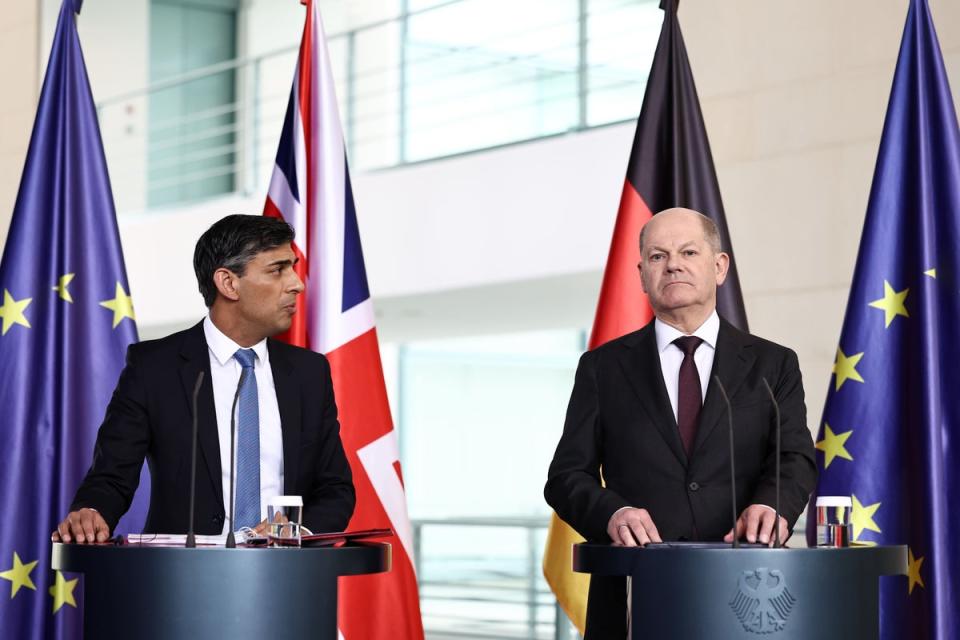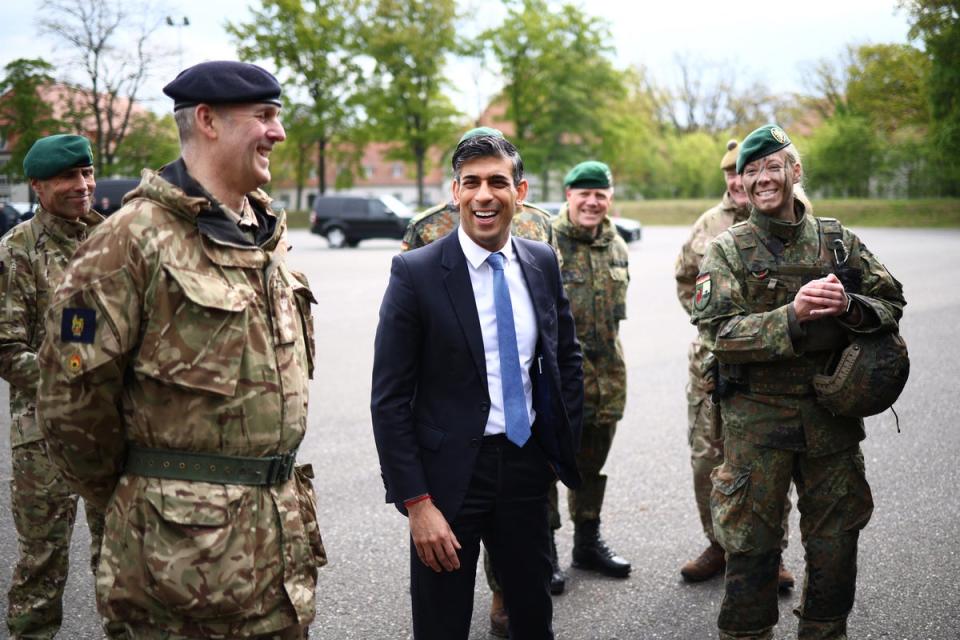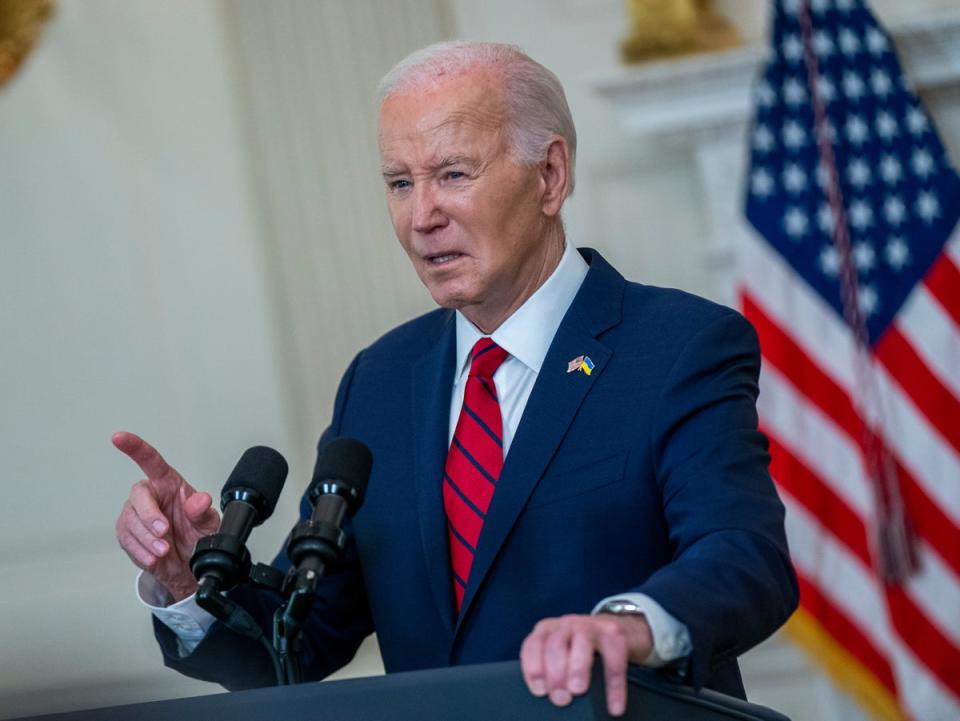Spend more on Nato to fight Putin, Sunak tells EU leaders after his £75bn defence boost
Rishi Sunak has challenged Britain’s European allies to meet his £75bn pledge to increase defence spending as US president Joe Biden signed a $61bn package of aid for Ukraine.
The prime minister warned the world is “more dangerous now than at any moment since the Cold War” and faces “an axis of authoritarian states”.
He also defended what he called "entirely reasonable” calls from US counterparts for greater European defence spending.
His words will be seen as a message to Donald Trump not to quit Nato should he win the US election later this year.
Mr Trump has previously said the US would remain in the defence alliance as long as European countries "play fair" and do not "take advantage" of support from America, which spends more on defence.
But UK defence secretary Grant Shapps risked a diplomatic incident over the months of political wrangling in Congress that delayed Mr Biden’s aid package for Ukraine. He said it reminded him of “the old maxim of Winston Churchill, that the United States can always be relied on to do the right thing, once they have exhausted all other options”.

Announcing that Washington will send fresh weapons and equipment to Ukraine “right away”, Mr Biden said the money would “make the world safer”.
“It’s a good day for America, a good day for Ukraine and a good day for world peace,” he said. “[The aid package is] going to make America safer. It’s going to make the world safer. And it continues America’s leadership in the world.”
The US president conceded that it had been a “difficult path... but in the end, we did what America always does: we rose to the moment, came together. We got it done.”
Mr Sunak will use a summit to mark the 75th anniversary of Nato in Washington DC in July to lobby allies to match his defence spending commitment, Mr Shapps said.
Both men are set to argue that spending 2.5 per cent of gross domestic product (GDP) should be the benchmark.
The previous target of 2 per cent target was set 10 years ago "when we didn't have the significant rise of China, North Korea now nuclear-armed, Iran attacking and using its proxies to attack, and a very much less stable world given Russia's full-scale invasion of Ukraine,” Mr Shapps added.

Mr Sunak said he was “making a choice to prioritise defence”.
At a press conference alongside German chancellor Olaf Scholz, he said it was the “right thing to do because whether we like it or not the world is more dangerous now than at any moment since the Cold War and it falls on leaders... to do what’s necessary to keep our continent safe and stand up for our values."
He warned: “We cannot expect Americans to pay any price, to take any burden if we in Europe are not ourselves prepared to make those sacrifices and make those investments.”
Pressed to rule out cuts to public services to fund the change, the prime minister said: “We have record investment in our public services, including the NHS – that’s not going to change, it’s going to continue. We have record investment in our schools – that’s not going to change, it’s going to continue to increase.”
The prime minister even claimed it was possible to press ahead with the plans and still “cut people’s taxes” – a sign he is trying to close the polling gap with Labour ahead of the next general election.
Mr Sunak pledged on Tuesday to increase defence spending to 2.5 per cent of GDP by 2030, paid for in part by slashing 72,000 civil service jobs.
But Labour has called on the prime minister to explain how the promise will be funded. Shadow attorney general Emily Thornberry said Mr Sunak had “essentially committed to spending another £75bn on defence by 2030” without “a single line of detail on where their money was coming from”.
And Torsten Bell, chief executive of the Resolution Foundation think tank, said the government’s explanation of how the pledge will be funded is “a joke”.

Economists last month warned that chancellor Jeremy Hunt’s national insurance giveaways were dependent on “big implicit cuts in public investment spending overall” after the next general election.
Ben Zaranko, a senior economist at the Institute for Fiscal Studies, accused ministers of basing the defence spending pledge on “dodgy baselines”. He said the claim that the extra spending was equivalent to £75bn was based on comparison with a theoretical defence spending freeze until 2030, and that the actual amount was closer to £20bn.
“The government is trying to have it both ways by saying this is a game-changing amount of investment going into defence, but also this is small enough that we can make up for it by getting rid of a few thousand civil servants,” he said.


